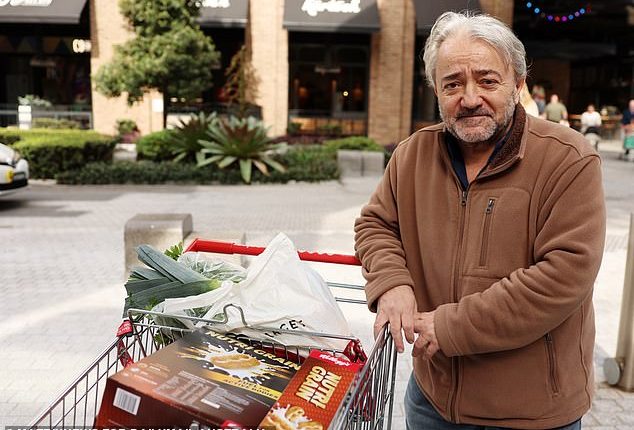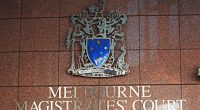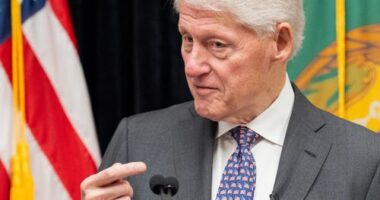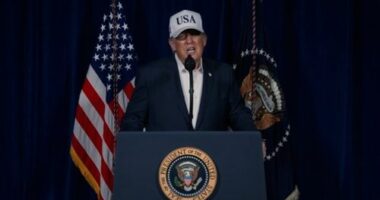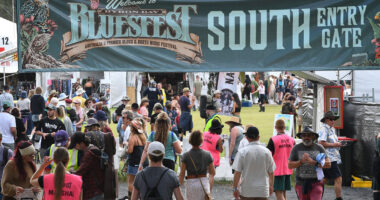Share this @internewscast.com
Older baby boomers could soon pay more tax following a call from a leading accountancy group to broaden the Goods and Services Tax.
Australia’s GST has remained unchanged at 10 per cent of the price of most goods and services since it debuted 25 year ago this week.
Fresh produce and plain milk are not subject to GST due to an agreement reached by John Howard’s Coalition government with the Australian Democrats in the Senate.
These GST exemptions mean working Australians – instead of retirees on the age pension and those on welfare – carry a bigger tax burden.
Personal income taxes make up more than half of federal government revenue, even though the GST was originally designed to reduce income taxes.
CPA Australia has declared this is unfair on younger Australians.
The group’s chief executive, Chris Freeland, said increasing or broadening the GST would reduce the income tax burden on those in the labour force.
‘GST belongs at the heart of any discussion of tax reform,’ he said.

An influential accountancy organization is advocating for the expansion of the GST, aiming for older baby boomers in Australia to contribute more taxes (pictured is a shopper in Sydney).

Chris Freeland, the CEO of CPA Australia (pictured), suggested that expanding or raising the GST would alleviate the income tax pressure on working individuals.
‘Most tax specialists believe that increasing the GST is the key to broadening the overall tax base.
‘Reducing the reliance on personal income tax would put more money in people’s pockets and ultimately generate more revenue to drive economic growth.’
Australia’s 10 per cent GST is low by world standards, with New Zealand having a 15 per cent GST and the UK having a higher 20 per cent Value Added Tax.
‘OECD statistics show that Australia has an unsustainably high burden on income tax, which means workers and businesses contribute a lot more of the base compared to other countries,’ Mr Freeland said.
He said it was time to have a mature conversation about expanding the GST to cover fresh food, like fruit, vegetables, unflavoured milk and uncooked meat.
‘It’s time for a grown-up conversation about Australia’s tax system and the GST’s structural weaknesses,’ he said.
‘For the past quarter of a century, the GST has remained virtually unchanged, and its inconsistencies and design flaws – such as taxing some foodstuffs and not others – have been ignored.’
Money from the GST flows to the states and territories, with New South Wales expecting to rely on it for 22.4 per cent of its $124.2billion in revenue in 2025-26.

Treasurer Jim Chalmers last month admitted he would be open-minded about changes to the GST ahead of an economic roundtable in August (he is pictured with Anthony Albanese)
Treasurer Jim Chalmers last month admitted he would be open-minded about changes to the GST ahead of an economic roundtable in August.
‘What I’m going to try and do – because I know the states will have a view on it, I’m going to try not to dismiss every idea that I know that people will bring to the roundtable,’ he told the National Press Club in Canberra.
‘I suspect the states will have a view about the GST – it’s not a view that I’ve been attracted to historically, but I’m going to try not to get in the process of shooting ideas between now and the roundtable.’
The federal government is expecting to collect $349.7billion from income taxes in 2025-26, making up 51.7 per cent of the Commonwealth’s $676.1billion in revenue.
By the 2028-29 financial year, Treasury is expecting personal income taxes to make up 54 per cent of revenue as receipts from individuals soared to $420.3billion from a total collection pool of $778.3billion.
Mr Freeland admitted that broadening or increasing the GST would require compensation payments for those on the low incomes and age pension.

Australians need to be 67 to get the age pension, making them more likely to be boomers (pictured is a couple at Cronulla in Sydney’s Sutherland Shire)
Australians need to be 67 to receive the age pension, making them more likely to be boomers. There were 5.4million baby boomers at the 2021 Census.
The youngest boomers turned 60 last year, making them eligible to access their super and stop having to pay a 15 per cent earnings taxes if they had stopped working.
‘Of course, you also have to look at who would be impacted, such as lower-income households and pensioners, to make sure they’re adequately compensated during the transition,’ he said.
Single Australians on the age pension can get $1,051.30, rising to $1,585 for couples, with the family home exempt from the assets test.
Those selling their family home also escape capital gains tax if it was their principal place of residence and not an investment property rented out.
The Liberal Party under former leader John Hewson lost the 1993 election with a plan for a 15 per cent GST, but it won in 1998 with a plan for a 10 per cent GST.
